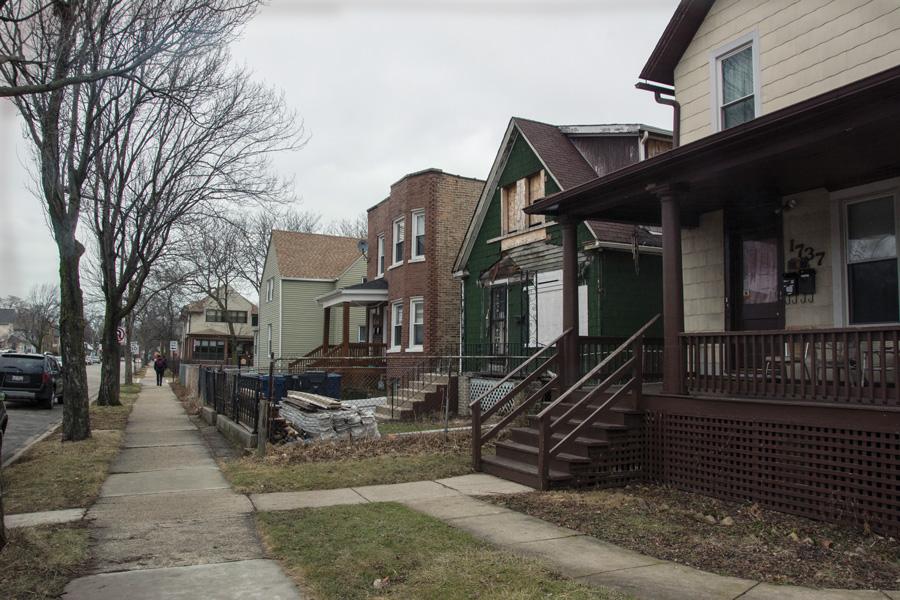Proposal to financially support small, medium landlords to go to City Council for discussion
Leeks Lim/The Daily Northwestern
The proposal will be discussed by City Council at the next meeting on Dec. 13.
November 17, 2022
The Housing and Community Development Committee unanimously voted to recommend approval from City Council for small and medium-sized landlords to fund income lost during the COVID-19 pandemic at a Tuesday meeting.
Council will vote on the program, funded by $500,000 of American Rescue Plan Act funding, at their Dec. 13 meeting.
The committee has been discussing the Small/Medium Landlord Assistance Program since October. While all committee members supported the program, two Evanston landlords said the city has historically not supported landlords providing affordable housing and isn’t giving enough money now.
Landlord Tina Paden spoke in multiple public comments at city meetings throughout October and November on the issue. She said the city has not granted enough resources to landlords who are providing affordable housing necessary for the city.
“We have been here asking for years before any of those people came and I feel very slighted about this — that we are here struggling to house the people at affordable units and no one is listening,” Paden said at the Oct. 25 Planning and Development Housing Subcommittee meeting.
The program states that eligible landlords must own no more than 20 units. They must also be located in areas designated as having lower housing costs and high rankings on the Urban Institute “Emergency Rental Assistance Priority Index.”
Eligible landlords will receive up to 75% of net income loss reported on their 2021 business tax return for the rental properties, though assistance is not to exceed $15,000 per applicant.
Ald. Clare Kelly (1st) said the program is a way for the city to support landlords with affordable housing –– instead of investing in new housing.
“It’s so important that we preserve our natural housing stock, in particular our mom and pop stock,” Kelly said during the committee’s Oct. 18 meeting. “It’s important that our city is integrated and that we have affordable housing spread out throughout Evanston.”
Paden said capping the amount at $15,000 is not enough to support those providing affordable housing. Both mentioned other projects in which the city has invested, including the Robert Crown Community Center, Northlight Theatre and businesses on the Main-Dempster Mile.
“I will not be able to sustain helping for over 50 years in this community,” Paden said. “This feels like a slap in the face when now there’s very little ARPA money left and you can’t dedicate any money of substantial reasoning (to small landlords).”
Gail Schechter, a local housing advocate and executive director of Housing Opportunities & Maintenance for the Elderly in Chicago, voiced her support for the program during public comment.
She told The Daily the new housing being built in Evanston is not affordable. A recent proposal to convert the Evanston Masonic Temple into apartments requires only three of the 24 planned units meet affordable housing guidelines. Even the Inclusionary Housing Ordinance, which requires at least 10% of units to be affordable, is still just “a drop in the bucket,” Schechter said.
Schechter said the best way to serve moderate to low-income renters is to subsidize rent to keep it low, and maintain the stock that already exists, especially in Evanston.
“Evanston has been losing, I would say probably since 1990, its stock of housing that’s affordable to people on low incomes,” she said. “It has really dwindled.”
The proposal will be sent to City Council to discuss at its Dec. 13th meeting.
Email: [email protected]
Twitter: @shannonmtyler
Related Stories:
— A history of initiatives and attempts to increase affordable housing in Evanston
— City Council purchases vacant Hovland Court property for affordable housing


